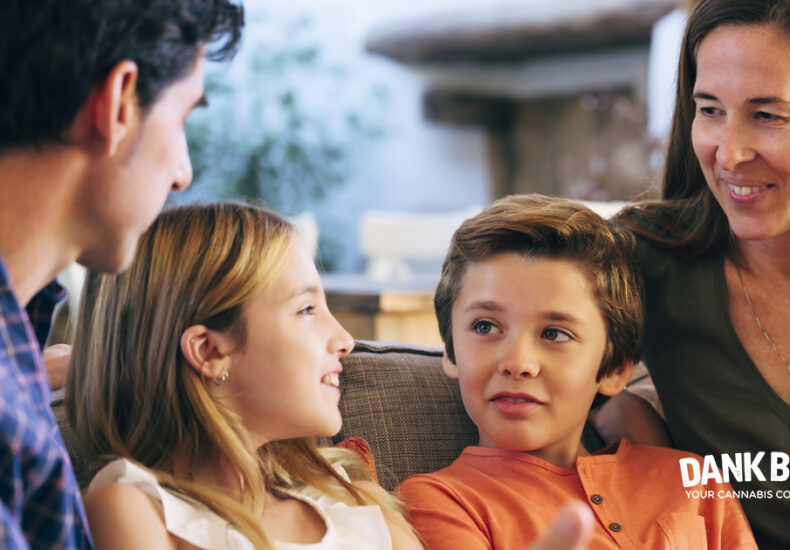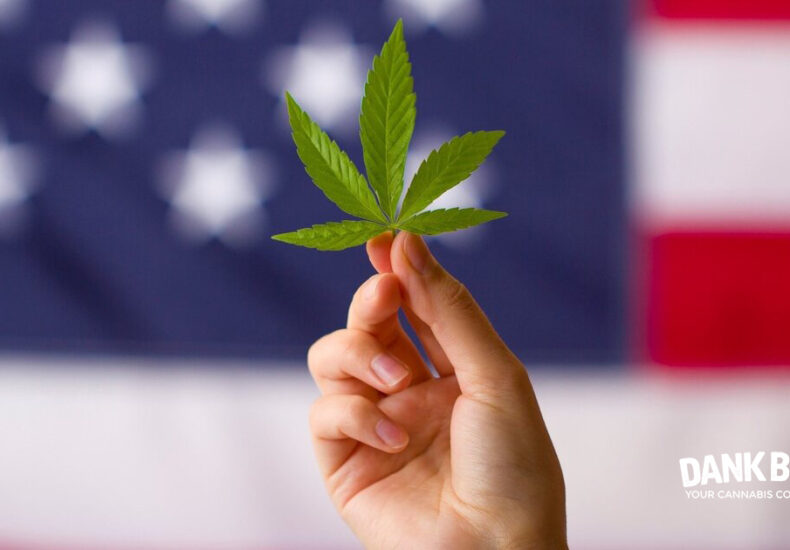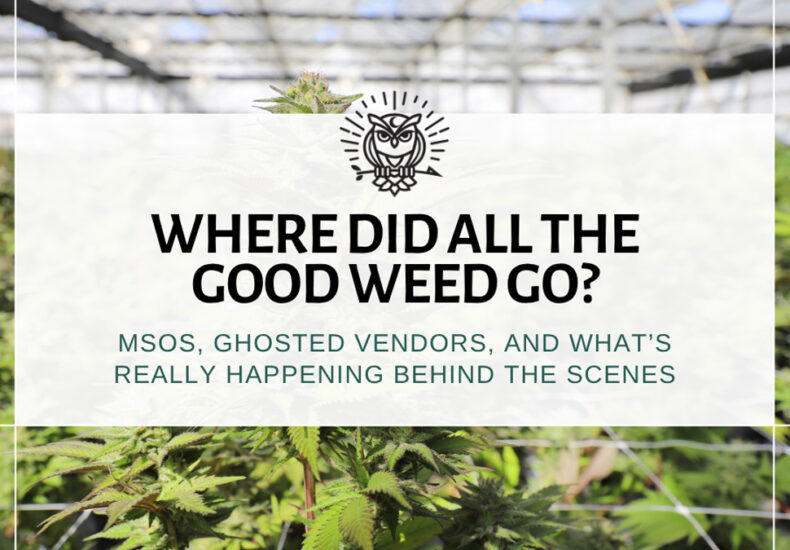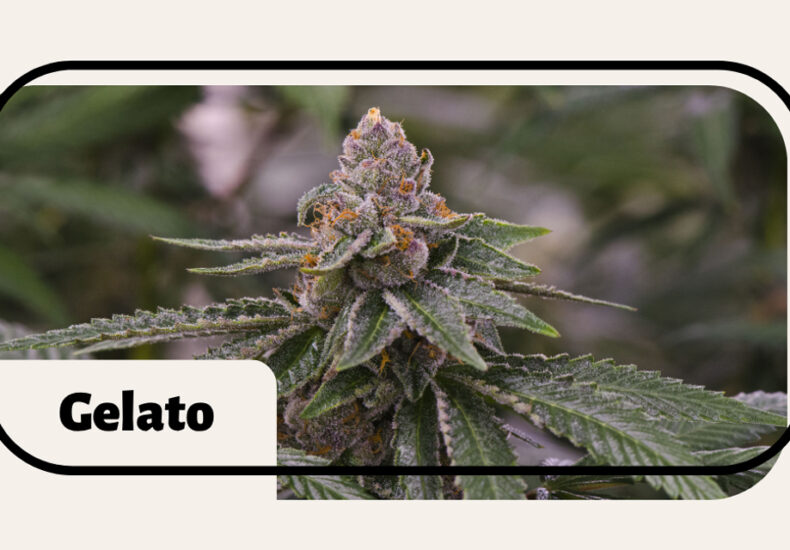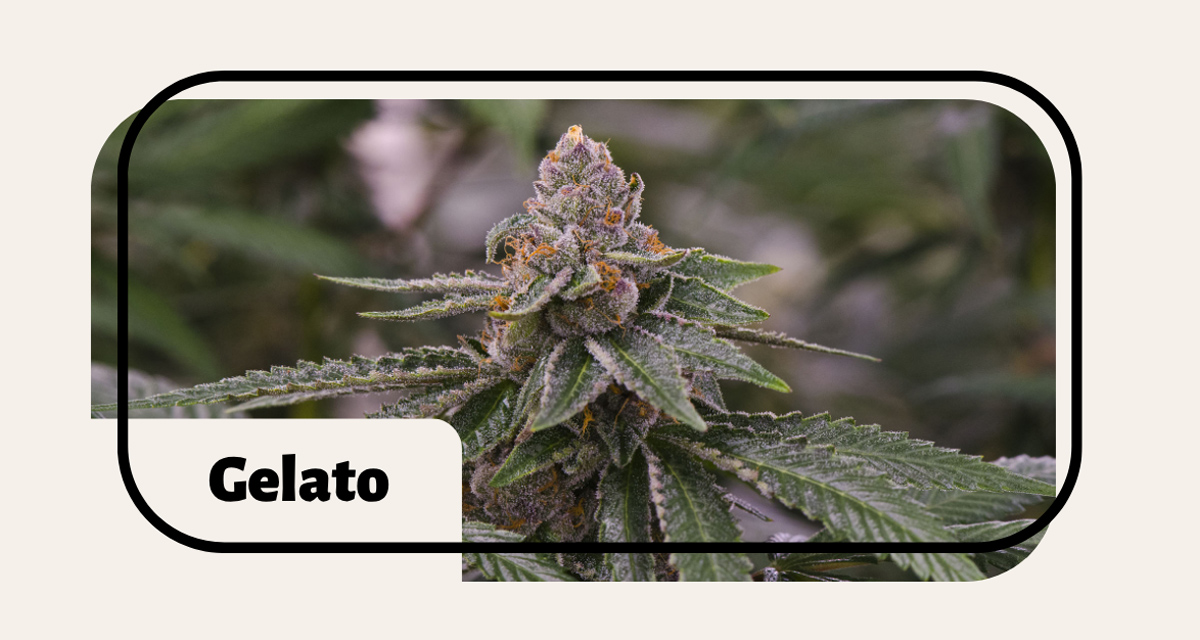
Making a purchase through a link on this page may earn us a small commission. Learn More.
When one of the original marijuana flicks, Up in Smoke, hit the big screens in the 1970s, it was both embraced by a community of folks who recognized the benefits of cannabis and scorned by others who saw it as a gateway drug of epic proportions. Since then, Hollywood has created hundreds of stoner films – Friday, Dazed and Confused, and Pineapple Express, just to name a few – that celebrate Mary Jane as a mind-altering substance for teenagers and mellow grown men sowing wild oats.
Where were the moms using cannabis while parenting? They were non-existent in films and pop culture.
We live in a much more cannabis-friendly society today. As weed has been made legal for medicinal and recreational use in more than 34 states, people accept its usage for pain relief, anxiety control, and insomnia.
Even recreational use doesn’t carry the same stigma it did during the 70s and 80s, at least for many other populations other than parents. Society still thinks marijuana use and parenting are a bad combination, especially for mothers, who are viewed as “too responsible” to smoke a joint. That’s simply not the case.
Weed Mom
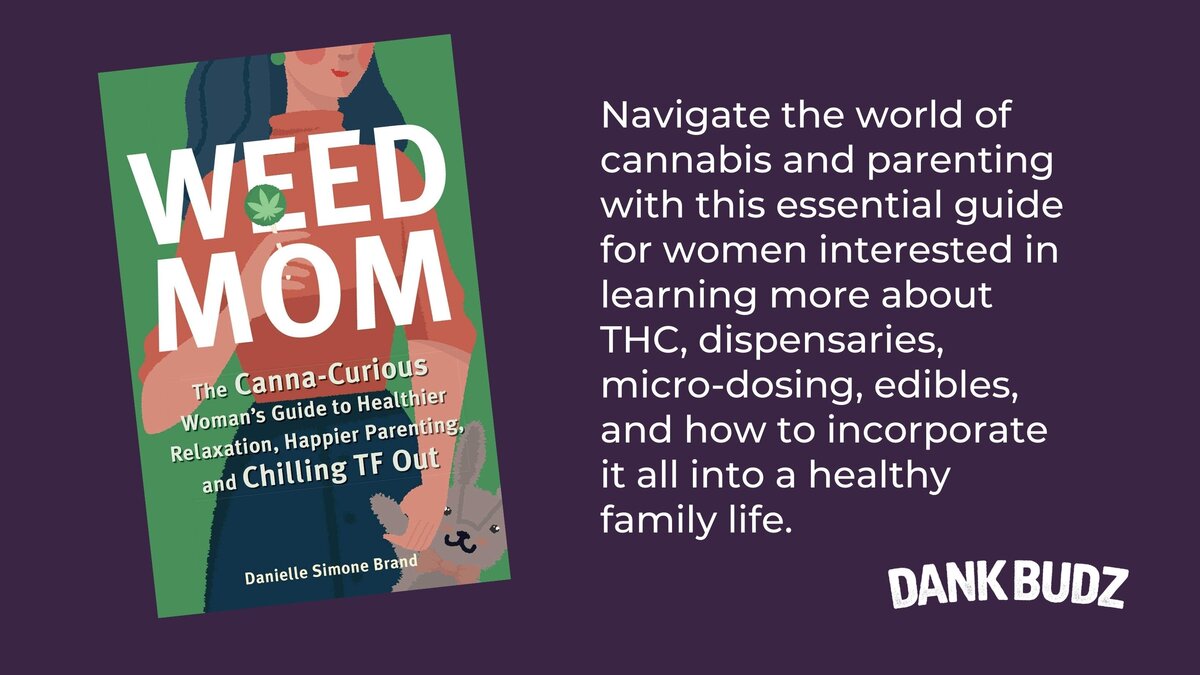
Fifty-five percent of American adults use cannabis, and of those, more than half are parents of children under the age of 16, but many remain anonymous because of the stigma it holds. Danielle Simone Brand challenges the stereotypes of typical cannabis users in her new book, Weed Mom. Her philosophy is simple: if mom is happy, everyone is happy — and regular cannabis use can make mom very happy.
Brand’s experience with the cannabis lifestyle started counter-intuitively with her husband’s trip to drug rehab for cannabis addiction. While he was prone to paranoia and darkness, taken to the max while using cannabis, Brand had the opposite experience: weed gave her a new perspective and created a “less harried” version of herself. “When consuming responsibility, I’m not a different person or a chemically forged supermom…[I’m] a me who doesn’t stress nearly as much about things that don’t require stressing,” she wrote in an excerpt from the book.
Weed Mom is a look into the mellow side of motherhood accessible through responsible cannabis use. Brand’s confident and authoritative discussion of where mothers who are new to weed can find quality cannabis, how to talk to their spouse, children, and friends about using cannabis, and advice for using cannabis while parenting. Reading Weed Mom feels like spending the afternoon with a cool, confident new mom friend who can help them make informed decisions about their mental and physical health with cannabis.
Brand describes the many positive effects of using cannabis for moms and, indirectly, for the whole family. Physically, it can help ease pain, for everything from a headache to period cramps. Mentally and emotionally, marijuana can lower stress, improve mood, and treat anxiety. She even mentions that it can enhance sex drive and help busy, harried women reconnect with their sexual energy. A pain-free, happy, less-stressed mom is the key that unlocks a thriving family life.
Although the book feels like a love letter to weed, it brings up various questions about marijuana use and parenting that our cannabis-friendly society still grapples with today.
The Stigma Around Marijuana and Parenting
The stereotype of lazy, irresponsible, mindless, and unstable cannabis users took root long ago, and parents who have used it and still raised healthy, happy children while leading successful careers are working to tear them out.
Many parents who regularly consume cannabis share they are more nurturing and patient parents, and research says they’re much more than that. According to the Pew Research Center, cannabis users are more likely to be homeowners with children, have full-time jobs, and work out regularly. The numbers show that these users are far from lazy.
Misconceptions stem from misunderstanding. People who have never tried cannabis often don’t realize the effects weed has on regular people. For most people who use cannabis responsibly, they find their personalities are the same, but better — more creative, more social, and more calm. When stereotypes are strengthened by Hollywood characterizations that society believes for decades, they will be much more difficult to change.
Responsible Parenting and Pot
Cannabis use for parents begs another question — what does it mean to be responsible? Even though marijuana is legalized in more than half the states in the U.S., government agencies still maintain a bias against parents who regularly use cannabis. Child welfare agencies are especially sensitive to the issue, and a simple call from a neighbor or family member who isn’t on board with marijuana is enough to trigger an investigation. The emotional trauma for children and parents going through an investigation is far worse than smoking.
Some have compared alcohol use, a staple of parent culture, to cannabis in terms of parental responsibility. Most people wouldn’t think twice about parents drinking a beer in front of their children at dinner or having a glass of wine at a family get-together. Alcohol and parenting together is appropriate in moderation and in the right situations.
The same applies to using cannabis while parenting — it’s perfectly fine in moderation and in the right situations. In both cases, adults can consume and still care for their children, pay bills, and hold jobs — but there’s a stigma to one of them.
Marijuana stereotypes and policies are based more on opinion and fear than science. A 2017 study at the University of Colorado-Boulder found that alcohol does more damage to the brain than cannabis use, and 70% of Americans think smoking pot is less risky than drinking alcohol. If a couple of glasses of wine with dinner at home while parenting is fine, smoking a joint after dinner while parenting should be as well.
Responsibility, therefore, has less to do with the type of substance you consume and more to do with how much and how often you consume it. In Weed Mom, Brand explains this as the Five W’s of Weed Game: Why, What, Where, When, and Whom, and gives practical advice for new-to-the-scene parents about ways to use cannabis in a safe, controlled manner. It’s like an instruction manual for finding peace and joy through a lovely little plant.
Talking With Kids About Marijuana
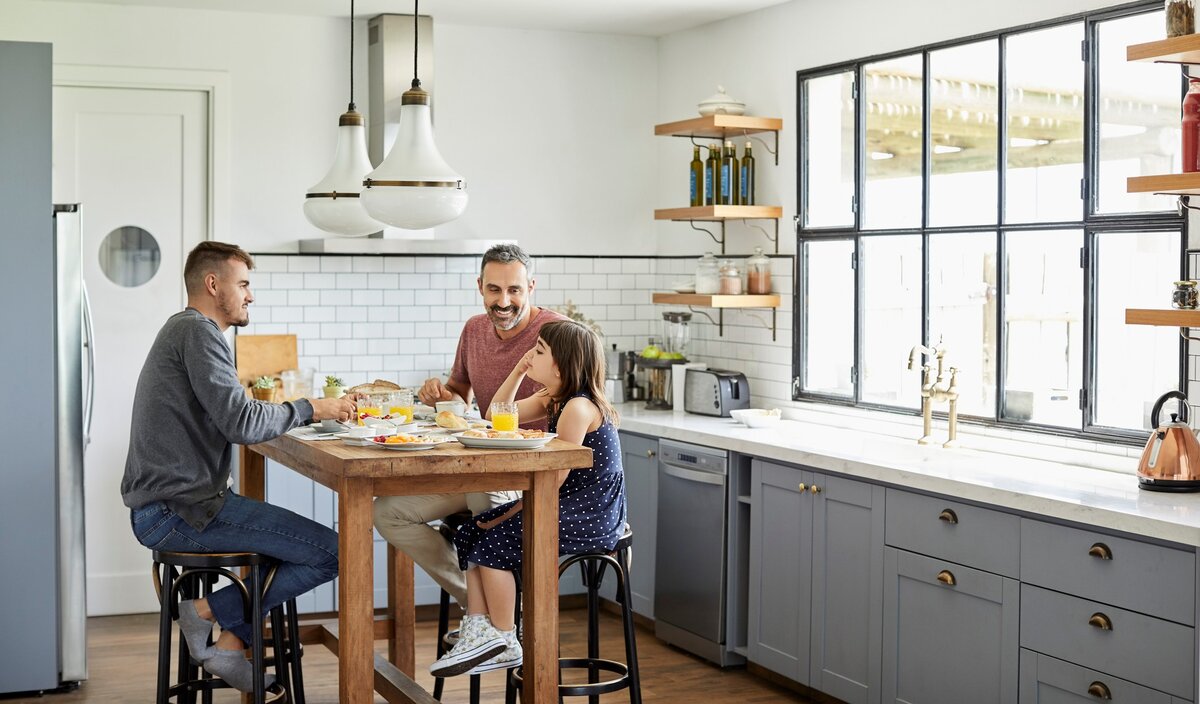
Until the stereotypes are history and pot is legal at a federal level, many parents who use cannabis will choose to keep their use under wraps. Still, being honest with children, family, and friends can bridge the gap of understanding. Brand offers straightforward tips for talking about marijuana and parenting, including sharing science-based facts instead of threats and fear. She recommends choosing honesty and being keenly aware of how much children are ready to hear or can understand.
Age limits are established for a reason. Cannabis has a far different — and more harmful — effect on teenage brains than adult brains. Drawing a firm line when talking to teens and adolescents about using marijuana is helpful. It’s the same message as alcohol: adults can enjoy them both in moderation, but they aren’t safe for children.
Educating children and teens about the use of marijuana is not the same as enabling or encouraging them. Instead, it’s about empowering. There’s a specific power in understanding the time and place for using cannabis, identifying when it’s been too much, and recognizing a dependency problem. A healthy discussion about cannabis, in addition to observing their parents using responsibly, can help young people break the stereotype of marijuana use.
In her book, Brand explains that teaching your children about cannabis is not only important for their own health and safety, but also for critical thinking skills that can make them better people. She encourages teaching the whole history of the plant, because kids can gain a deeper understanding of social justice as well as government policy and environmentalism. They may just become better people and better citizens with this more well-rounded knowledge.
Disparities in Marijuana Use
Legalization has brought along welcome changes in marijuana use acceptance, but it’s not the same for all moms. As Brand explains, women of color are still unfairly criticized and held to a different standard than white mothers. She describes police harassing black mothers for legally smoking on their property and women of color being made to feel unwelcome in dispensaries in more affluent white neighborhoods.
Since the “war on drugs” began in the late 1970s, cannabis-related jail sentences have risen substantially, often at the expense of people of color. Brand notes that far more women of color have been incarcerated for marijuana. The social and political histories are too complex to unravel quickly, but Weed Mama handles the conversation with frankness and with an invitation for her audience to be the change the world needs.
Understanding The Benefits Of Cannabis
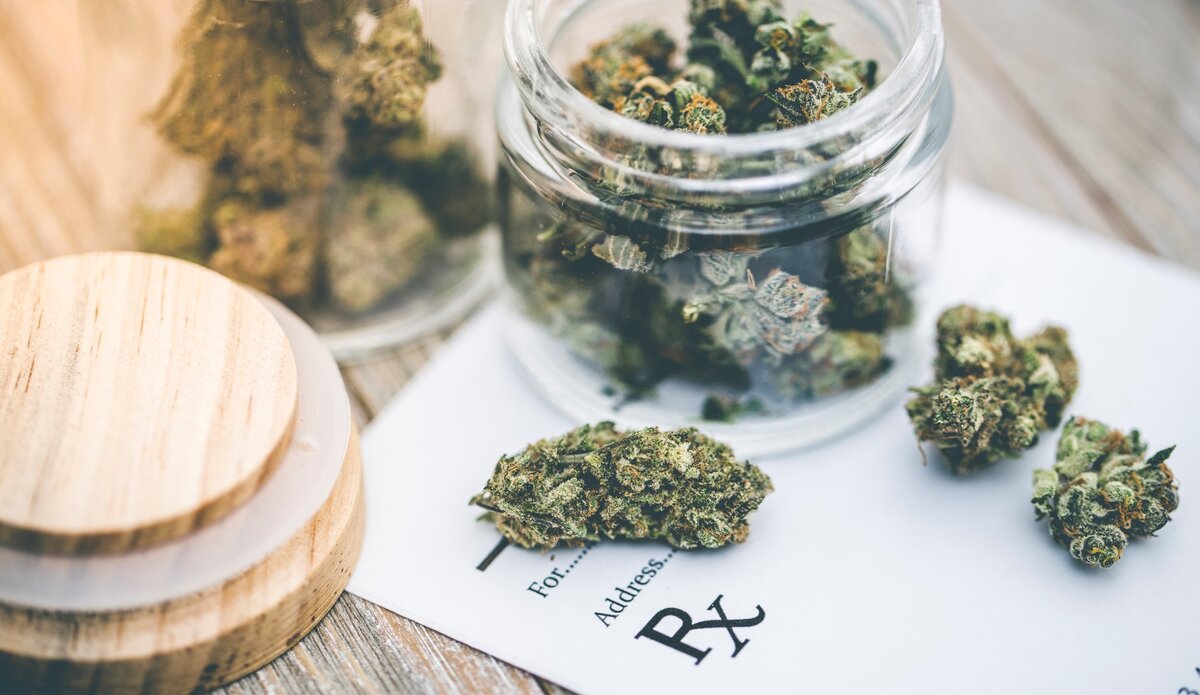
Cannabis may be just a plant, but its use and effects are backed by fascinating science. Bland takes readers in a short intro to Cannabinoid 101 and explains the science behind why it causes feelings of calmness, euphoria, and pain and anxiety relief. She talks about the political aspects of cannabis, the numerous conditions that therapeutic use of cannabis can treat, and what she believes the future holds for marijuana use and parenting.
Like teaching your children about appropriate responsible use can help them understand why it is not for them, education about how cannabis works can help moms and dads using cannabis while parenting makes better decisions about their use. Deep knowledge of the strains of cannabis and varieties in each strain empowers moms to choose what’s best for their bodies and lives.
After years of being considered an alternative treatment for pain or symptoms of disease at best (and a placebo at worse), the medical community is finally embracing the scientific studies supporting the use of cannabis as a clinical treatment. Because of this support, more research has been funded. It’s a snowball effect that will hopefully lead to a transformation for cannabis.
Science is a powerful tool to continue bringing marijuana into the common culture. Destigmatizing cannabis use starts with safety research and proving once and for all that marijuana has more benefits than problems.
Cannabis Use to Support Moms
Brand’s take-home message in Weed Mom is that motherhood is more challenging than any other time in history, and if a little Mary Jane can help make things a little easier, so be it.
Women are faced with a load of responsibilities, from caring for children to remembering whose birthdays are approaching. Unlike families decades ago, many don’t have a village to rely on for help. Brand celebrates mothers and the unique struggles they share.
Weed Mom invites moms to embrace cannabis consumption as a way to unwind, relax, and carve out space for themselves. Self-care is essential — as they say, you can’t pour from an empty cup — and mindfully enjoying marijuana is a form of self-care. Consuming cannabis by smoking, eating, or vaping is no different than yoga, meditation, hobbies, or any other activity that can ease a person’s mind and give them joy.
The goal of using cannabis isn’t to tap out or shirk responsibilities — it’s to give space to be the best version of ourselves. Brand says pleasure is a human right, and if marijuana and parenting mix well for any family, they should own it and have peace of mind they are doing the best thing for their families.
Using Cannabis While Parenting: Final Thoughts

Weed Mom is a wonderfully researched book that makes cannabis consumption accessible to parents — from old pros to pot newbies. Brand weaves a story that’s interesting and immensely helpful with sensitivity, empathy, and a little humor.
The book also brings to mind questions about the future of cannabis — what does responsibility mean, how do parents talk to their children, and how does society end the stereotypes associated with marijuana use.
If you’d like to read the book yourself, you can purchase Weed Mom: The Canna-Curious Woman’s Guide to Healthier Relaxation, Happier Parenting, and Chilling TF Out here. Amazon users give it 4.5 out of 5 stars, saying things like, “If you’ve ever been curious about using cannabis and don’t know where to begin this book will clear up a lot of misconceptions and fear.” And, “Very well researched with science backed evidence, as well as plenty of anecdotal stories that blend humor and real-life sadness. I would recommend this book to everyone, not just moms.”
What do you think about parenting and cannabis? Share in the comments with us.
